Chemical Peels
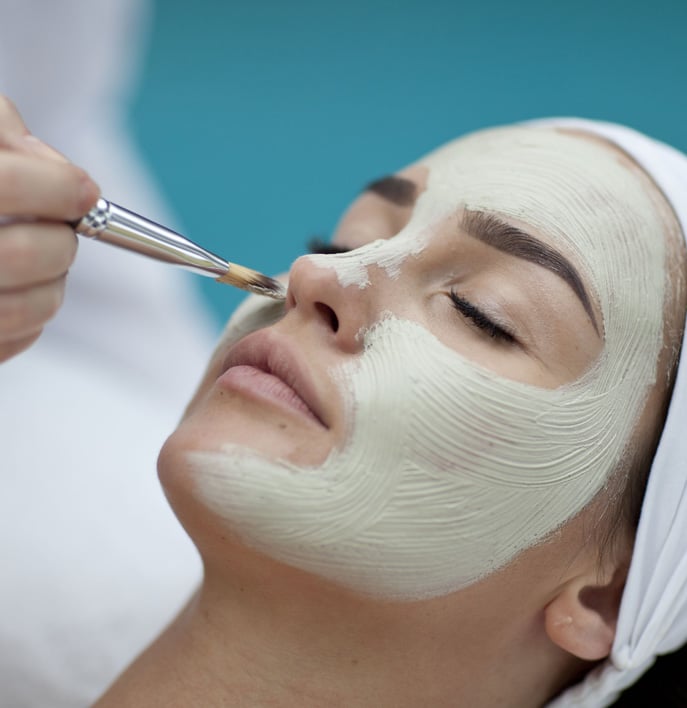
Chemical peels are a type of treatment that can be used to treat a variety of conditions, including acne, wrinkles, and sun damage. The peel uses a chemical solution to remove the outer layer of skin, revealing the smoother, healthier skin beneath. Chemical peels can be performed at different depths, depending on the severity of the condition being treated. The deeper the peel, the more effective the results.

Best Candidates for Chemical Peels

Dull complexion
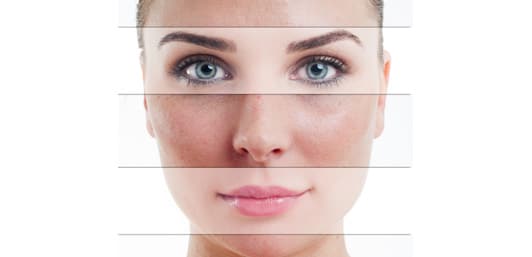
Uneven skin tone
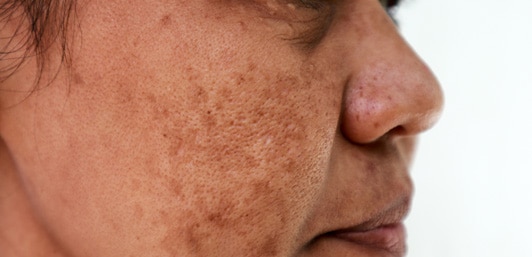
Melasma
Chemical peels are a popular cosmetic treatment that can be used to improve the appearance of the skin. Typically, they can typically take 30 minutes to 1 hour. The length of time depends on the type of peel being performed. It is an effective treatment for many conditions and offers several benefits. If you are considering a chemical peel, consult a qualified provider to determine if this treatment is right for you.
Types of Chemical Peels
Chemical peels are one of the most popular and effective treatments for a number of skin imperfections. But with so many different types of peels available, it can be difficult to know which one is right for you. The three most common types of chemical peels are:
Alpha Hydroxy Acids (AHAs)
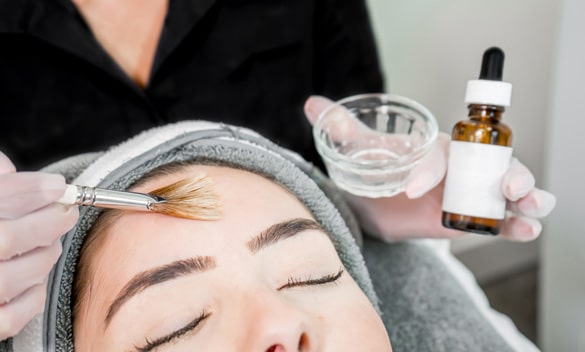
Alpha Hydroxy Acids (AHAs)
AHAs are the most popular type of peel, as they are effective for a wide range of skin concerns. The most commonly used AHA is glycolic acid, which helps to exfoliate dead skin cells and reveal new, radiant skin. AHA peels can be used to improve the appearance of wrinkles, fine lines, age spots, and other signs of aging. They can also help to reduce the appearance of acne scars.
Beta Hydroxy Acids (BHAs)
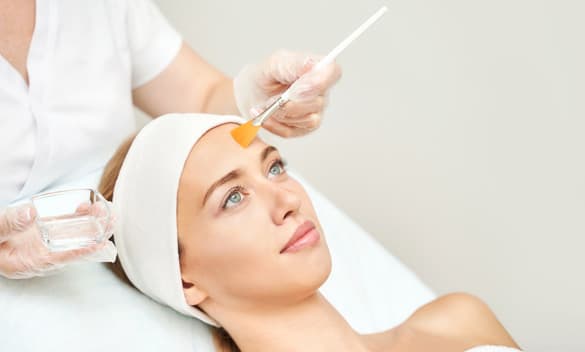
Beta Hydroxy Acids (BHAs)
Unlike AHAs, BHAs are oil soluble, making them ideal for treating acne-prone skin. The most commonly used BHA is salicylic acid, which helps to unclog pores and can help to clear up acne and prevent breakouts. BHA peels are also less likely to cause irritation than other types of peels, making them a good option for those with sensitive skin.
Trichloroacetic Acid (TCA)
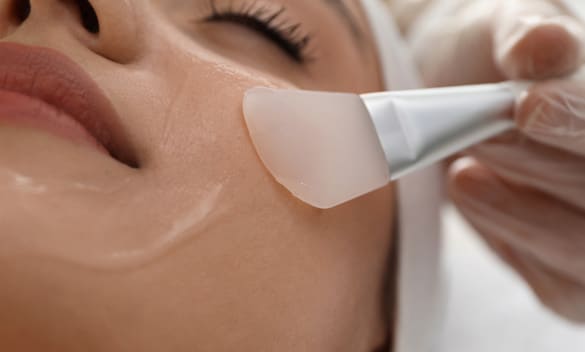
Trichloroacetic Acid (TCA)
TCA peels are the strongest type of chemical peel and are typically used to treat more stubborn skin concerns such as deep wrinkles and hyperpigmentation. TCA peels can also be used to improve the overall texture and tone of the skin. TCA peels can be performed at various depths, from superficial to deep. Superficial TCA peels are often used to improve the appearance of fine lines and wrinkles, while deeper peels are better suited for treating acne scars and other types of damage. The depth of penetration can be adjusted to meet the needs of each individual patient.
Benefits of Chemical Peels
Chemical peels can provide impressive results, making them a great option for anyone looking for a way to rejuvenate their skin.

Reduces discoloration

Treats acne vulgaris

Lightens visible scars

Improves skin tone
Risks of Chemical Peels
Like any other treatment, chemical peels can cause some side effects. However, they are rare and less likely, but can include:

Swelling or discomfort

Scarring

Infection

Redness

Contact
Dr. James Wang Today

If you're interested in learning more about chemical peels or any other cosmetic non-surgical procedure, contact Dr. James Wang today to schedule a consultation. Dr. Wang is a fellowship-trained plastic surgeon with years of experience helping patients achieve their desired results.
FAQs
Chemical peels can be a safe and effective way to rejuvenate the skin. However, like any cosmetic procedure, there are potential side effects like redness, flakiness, and sensitivity to the sun. But they are generally safe when performed by a licensed and experienced skincare professional.
The level of discomfort varies depending on the strength and depth of the peel. It is important to note that one should expect some discomfort. Still, individuals typically describe it as a sensation similar to a mild sunburn. You can easily manage it with over-the-counter pain relief medication.
Additionally, many professionals use numbing creams or other techniques to minimize discomfort during the procedure. However, the benefits of a chemical peel far outweigh any temporary discomfort.
The average time for a chemical peel to be applied and removed is approximately 30 minutes. However, it is important to note that some peels may take longer due to their specific instructions and recommendations from your skincare professional.
Chemical peels have effectively reduced the appearance of fine lines, dark spots, and acne scars. These treatments can also promote collagen production, resulting in firmer, more youthful-looking skin. A chemical peel may be worth considering to improve your skin’s tone and texture.
Yes, chemical peels can help acne scars. While they may not completely erase all acne scars, they can help improve the scars’ appearance and reduce the risk of new breakouts.
Generally, you should wait at least four to six weeks between treatments to let the skin heal and regenerate fully. It is also essential to consult a licensed skin care professional to determine the best frequency and type of chemical peel for your skin type and desired results. Remember, although chemical peels can do wonders for the skin, overusing or using the wrong peel can damage or worsen the skin’s condition.
Yes, you can wear makeup after a chemical peel, but you’ll need to wait a little before putting anything on your skin. After a peel, your skin will likely be red and sensitive, and you’ll need to give it time to heal before applying any products. Typically, you’ll need to wait about 24-48 hours before applying makeup, and even then, you’ll want to choose gentle and non-irritating products.
Yes! Chemical peels are one of the most effective ways to exfoliate and improve the look and feel of your skin. A chemical peel can reduce fine lines, wrinkles, acne scars, and hyperpigmentation by removing the outermost layer of dead skin cells. Plus, it stimulates collagen production, giving your skin a more youthful and radiant glow.
While it is important to moisturize and soothe the skin, avoiding anything that may cause further irritation or damage is equally important. You should use a gentle, non-irritating moisturizer or serum to help rehydrate and nourish the skin.
